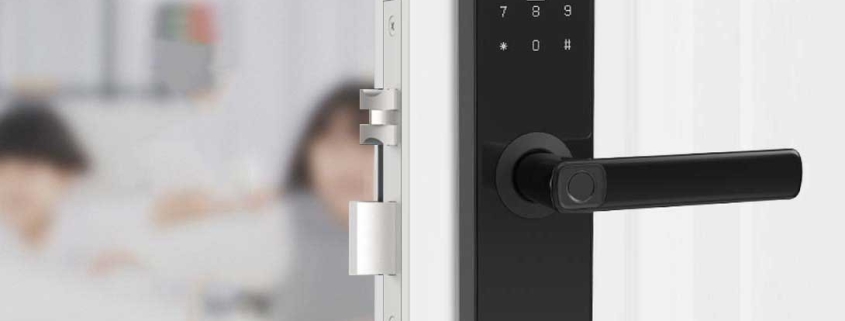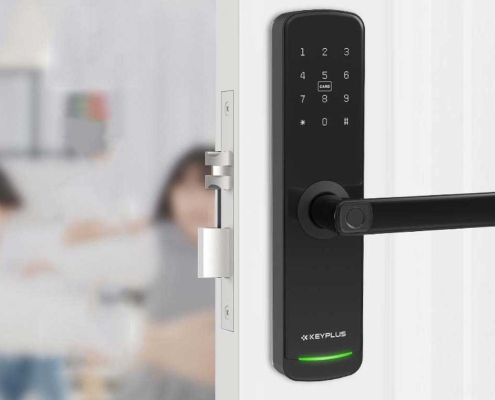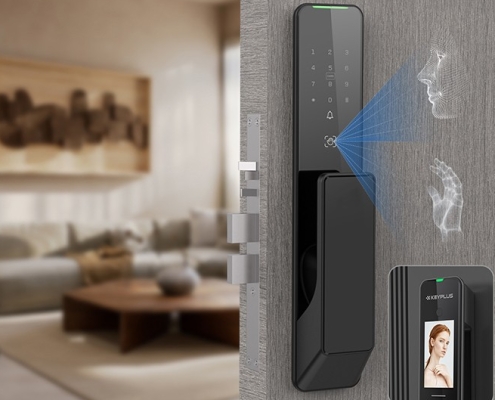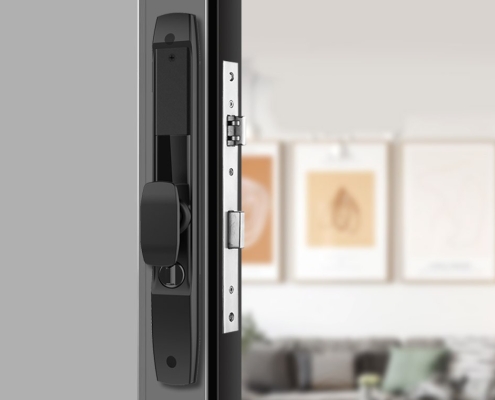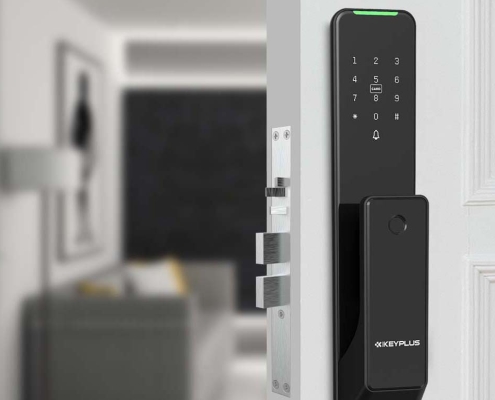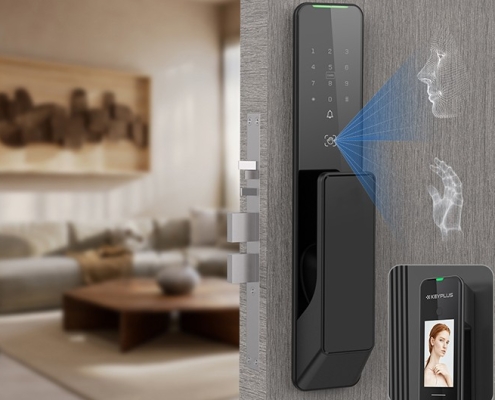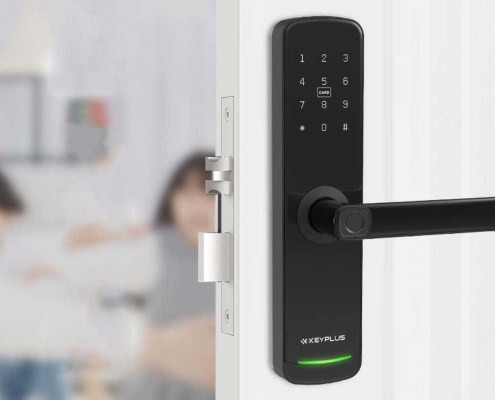What is the difference between a smart lock and a digital lock?
If you’re upgrading your home security, you’ve probably heard about smart locks and digital locks—but what exactly sets them apart? While both eliminate the need for traditional keys, they cater to different needs in terms of technology, convenience, and security.
For American homeowners debating between these two options, this guide breaks down:
-
Key differences between smart locks and digital locks
-
Pros and cons of each type
-
Which is better for security, renters, or smart homes
-
Top-rated models in each category
By the end, you’ll know exactly which lock fits your lifestyle—and why you might want one over the other.
Smart Lock vs. Digital Lock: The Core Differences
| Feature | Smart Lock | Digital Lock |
|---|---|---|
| Connectivity | Wi-Fi, Bluetooth, Z-Wave, Zigbee | Standalone (no internet required) |
| Control Methods | App, voice assistant, auto-unlock | Keypad, fingerprint, RFID card |
| Remote Access | Yes (lock/unlock from anywhere) | No (must be at the door) |
| Installation | Replaces deadbolt or retrofit | Usually replaces entire handle set |
| Best For | Smart homes, remote access seekers | Keyless convenience without Wi-Fi |
1. Connectivity: The Biggest Difference
-
Smart locks connect to your home Wi-Fi, Bluetooth, or a hub (like Alexa or Google Home).
-
Digital locks operate offline—no internet needed.
2. Access Methods
-
Smart locks offer:
-
Phone app control (iOS/Android)
-
Voice commands (Alexa, Google Assistant, Siri)
-
Auto-unlock (when your phone is nearby)
-
-
Digital locks rely on:
-
PIN codes (backlit keypads)
-
Fingerprint scanners (biometric models)
-
RFID cards/fobs (common in hotels/apartments)
-
3. Remote Access & Alerts
-
Smart locks win here—you can:
-
Lock/unlock from anywhere (great for letting in guests remotely).
-
Get alerts if someone enters.
-
Set schedules (e.g., lock at bedtime automatically).
-
-
Digital locks require physical interaction—no remote features.
4. Security Features
Both can be secure, but:
-
Smart locks may have encryption vulnerabilities if hacked.
-
Digital locks are immune to Wi-Fi hacking but can suffer from keypad wear (guessing codes from fingerprints).
Pros and Cons: Which Should You Choose?
Smart Lock Advantages
Remote access (let in cleaners, dog walkers, or guests from your phone).
Smart home integration (works with Alexa, Google Home, Apple HomeKit).
Activity logs (see who entered and when).
Auto-locking (never forget to lock your door again).
Smart Lock Drawbacks
Dependent on Wi-Fi/power (if batteries die or internet drops, you may be locked out).
More expensive (200−400 vs. 100−250 for digital locks).
✖Privacy concerns (some track your data).
Digital Lock Advantages
No Wi-Fi needed (works in power outages if batteries are good).
Faster entry (just tap a code or fingerprint—no phone required).
More affordable (basic models start under $150).
No hacking risk (since it’s offline).
Digital Lock Drawbacks
No remote access (can’t unlock for a guest while you’re away).
Limited smart features (no auto-lock, voice control, or alerts).
Wear-and-tear risk (keypads can show fingerprints, making codes guessable).
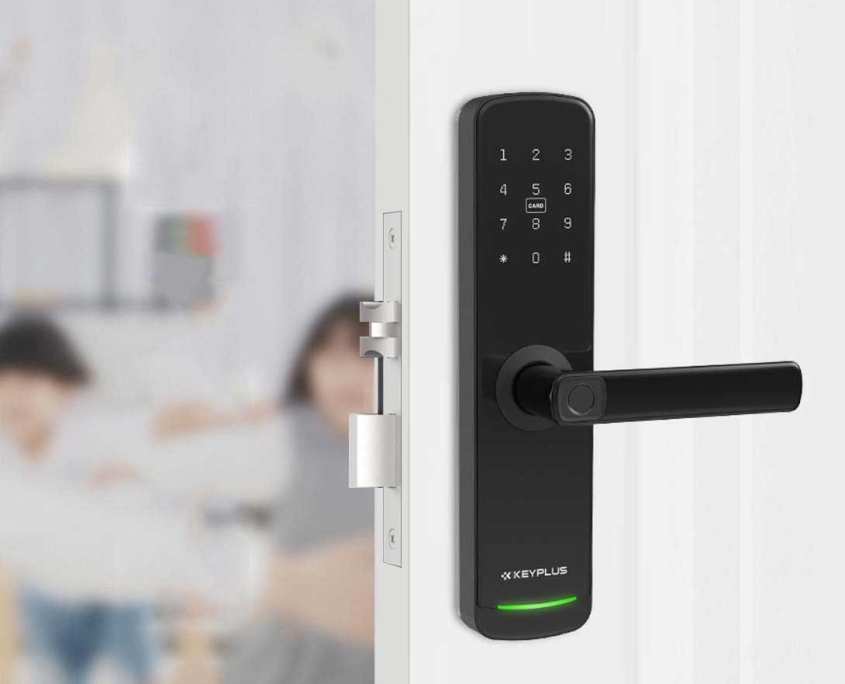
Best Use Cases: Who Should Get Which Lock?
Choose a Smart Lock If You…
Want remote access (for Airbnb rentals, frequent guests).
Love smart home tech (integrates with Alexa/Google).
Want activity logs (monitor kids, cleaners, or contractors).
Choose a Digital Lock If You…
Don’t need remote access (just want keyless convenience).
Live in a low-Wi-Fi area (or prefer no internet dependency).
Want a cheaper, simpler option.
Security Comparison: Are Smart Locks or Digital Locks Safer?
| Security Factor | Smart Lock | Digital Lock |
|---|---|---|
| Physical Tampering | Equal (both resist picking) | Equal |
| Cyber Hacking Risk | Possible (Wi-Fi/Bluetooth attacks) | None (offline) |
| Code Guessing | Rare (dynamic codes) | Possible (fingerprint smudges) |
| Battery Life | 6-12 months (varies by model) | 1-2 years (keypad models) |
Verdict:
-
For tech-savvy users, smart locks offer better monitoring.
-
For minimalists, digital locks are more reliable offline.
Installation & Maintenance Differences
Smart Locks
-
Harder to install (may require Wi-Fi setup, hub pairing).
-
Need occasional updates (firmware patches for security).
-
Battery drain faster (due to connectivity).
Digital Locks
-
Easier to install (just replace the old lock).
-
No updates needed (set it and forget it).
-
Longer battery life (keypad models last years).
Final Verdict: Which One Should You Buy?
Go for a Smart Lock If You Want:
-
Remote control (unlock from your couch or while traveling).
-
Smart home integration (voice commands, automation).
-
Detailed access logs (who entered and when).
Go for a Digital Lock If You Want:
-
Keyless convenience without Wi-Fi.
-
Lower cost & easier setup.
-
No hacking risks.
For most Americans, a smart lock is the future—but digital locks are great for simplicity.
FAQ: Smart Locks vs. Digital Locks
Q: Can a digital lock be hacked?
A: Not remotely, but keypad smudges can reveal codes.
Q: Do smart locks work without Wi-Fi?
A: Yes, via Bluetooth—but remote features won’t work.
Q: Which lasts longer, smart or digital locks?
A: Digital locks (less tech = fewer failures).
Q: Can I install these myself?
A: Yes! Most are DIY-friendly.
By now, you should know whether a smart lock’s high-tech features or a digital lock’s simplicity is right for you. Whichever you choose, both beat fumbling for keys!

